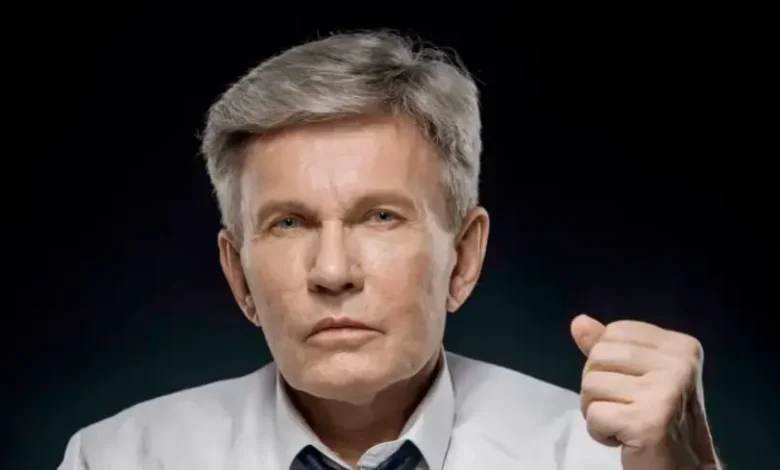“Draft law No. 12209 on social support for persons with disabilities is terrible, cynical and predatory”: Valeriy Sushkevych

Protection of the rights of people with disabilities is an important component of the social policy of every state striving for justice and equality. In the conditions of war, this problem becomes even more acute, because the number of people with disabilities increases dramatically due to hostilities, injuries and loss of health. War veterans, injured civilians, children who lost the ability to walk or see due to Russian attacks – they all need help. Social protection of such people becomes a matter of national responsibility. However, reality shows that in Ukraine, instead of increasing support, initiatives are being implemented that can make life difficult for these people.
People’s Deputy of Ukraine, President of the National Committee of Sports for the Disabled of Ukraine (National Paralympic Committee of Ukraine), Chairman of the All-Ukrainian Public Social and Political Association “National Assembly of Disabled People of Ukraine”, Commissioner of the President of Ukraine for the Rights of People with Disabilities Valery Sushkevich publicly expressed his indignation regarding the new draft law No. 12209, calling him “terrible, cynical and predatory.” He detailed it in his post on Facebook explained, why this document caused him so much pain and rage.
“During the long time of my struggle for the rights of people with disabilities and their social protection, I have seen many bills: bad, bad, erroneous, illegal, declarative… but for the first time I saw such a simply terrible, cynical, predatory bill – bill 12209!
The author of this draft law is Minister Zholnovich, who publicly declared her “burning desire” to break everything social in Ukraine. People with disabilities have long called her the minister of anti-social policy.” – said Sushkevich.
In his opinion, the draft law, initiated by Minister of Social Policy Oksana Zholnovich, is a vivid example of anti-social policy. Sushkevich noted that the ministry, which she heads, spends colossal sums every year on special pensions for judges, prosecutors and other privileged categories – about 120 billion hryvnias. At the same time, money that could have gone to support internally displaced persons, children’s rehabilitation and soldiers’ prosthetics remains unused. For example, last year there were more than 30 billion hryvnias of such unspent funds. In addition, the state prosthetic and orthopedic factories were sold, which makes it even more difficult to provide the necessary means to people who need prosthetics.
But the main blow, according to Sushkevich, falls on the most vulnerable category — people with disabilities. Bill 12209 provides for a number of norms that not only contradict international standards, in particular the UN Convention on the Rights of Persons with Disabilities, but actually deprive many of them of their right to exist.
In his post, Sushkevich listed the main provisions of draft law No. 12209 that cause particular concern
The Soviet division of people with disabilities into those able to work and those unable to work. The bill introduces a distribution that ignores the degree of disability. This contradicts the provisions of the UN Convention on the Rights of Persons with Disabilities and contributes to stigmatization, focusing on limitations rather than on the rights and capabilities of the person.
Cancellation of disability pensions. Instead of pensions, insurance benefits are offered, which in no way depend on the degree of disability. This destroys the social security system.
People with the 3rd group of disabilities are deprived of payments. According to the document, these people will be considered able-bodied and will have to provide for themselves.
Compulsion to work for persons with the II group of disabilities. People in this category will lose their right to benefits if they do not work. Thus, the draft law introduces forced labor for people who cannot physically withstand it.
Changes for persons with the 1st group of disabilities. The improvement of conditions can apply only to a limited number of people, and will be financed at the expense of other people with disabilities.
Ignoring illegally issued disability pensions. The draft law does not provide for combating the illegal assignment of pensions or special pensions, even if they were obtained fraudulently.
Assessment of work capacity through the State Employment Service. The draft law provides that the working capacity of people with disabilities will be determined by business entities engaged on a paid basis. This creates risks of corruption and biased decisions.
Mandatory rehabilitation, treatment and re-assessment of work capacity. The draft law forces people with disabilities to undergo regular rehabilitation and medical examinations. In case of refusal, they may be deprived of payments.
Punishment for avoiding medical procedures. People who do not undergo rehabilitation, medical examination or re-assessment of work capacity will be deprived of social support and insurance benefits.
Fixation of “violations” by doctors. Doctors and rehabilitators will be obliged to inform the Pension Fund about patients’ evasion of procedures, which will be the basis for the termination of payments.
Sushkevich draws attention to the fact that these norms will affect not only ordinary people with disabilities, but also veterans who have lost limbs, sight or hearing, as well as children and adults who have suffered as a result of war. He notes that such initiatives are a “stab in the back” for these people who rely on state support.
At the end of his address, Sushkevich called on the People’s Deputies of Ukraine to prevent the adoption of this draft law. He emphasized that the internal enemy, which destroys social policy, is no less dangerous than the external aggressor.
This situation once again proves that the struggle for the rights of people with disabilities is not only a matter of laws, but also of morality, humanity and justice. In the conditions of war, the protection of the most vulnerable categories of the population should be a priority for every civilized state.





